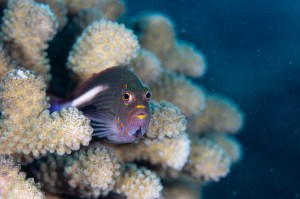Scuba Diving Certification: Your Gateway to the Underwater World of Kauai
 Co Authored with PADI Dive Specialist Instructor Reid Steinmetz
Co Authored with PADI Dive Specialist Instructor Reid Steinmetz
Scuba diving offers an unrivaled adventure beneath the waves, providing a unique perspective of the world’s vibrant marine life and mysterious underwater landscapes. In Kauai, Fathom Five has been a beacon for diving enthusiasts for over 40 years since its inception in 1982. As a certified PADI location, we offer both aspiring and experienced divers a gateway to this breathtaking world.
What is Scuba Certification?
Scuba certification is not just a credential—it’s your passport to explore the depths of the ocean safely and confidently. This certification confirms that an individual has completed the necessary training to dive safely, encompassing dive theory, equipment knowledge, and safety procedures. Being certified by a globally recognized organization like PADI (Professional Association of Diving Instructors) ensures comprehensive training in all aspects of scuba diving.
Choosing Between PADI and Other Certifications
When deciding on scuba certification, PADI (Professional Association of Diving Instructors) and SSI (Scuba Schools International) stand out as the two leading certification bodies. Both organizations offer robust training frameworks that prepare divers thoroughly:
- PADI: Renowned for its global recognition, PADI provides a diverse array of courses, from beginner to professional levels, emphasizing practical knowledge, conservation, and a modular learning approach.
- SSI: Celebrated for its flexibility and focus on practical skills, SSI also enjoys global recognition. It is often more affordable and offers more personalized learning experiences.
Is PADI or SSI better? Both organizations uphold exceptional standards and offer comprehensive training programs. The choice often depends on personal preference and the availability of nearby dive centers.
At Fathom Five, we prioritize safety and comfort above all. We welcome divers certified by any recognized organization, as long as their certification can be verified through our database. For those who have been out of the water for a while, we encourage you to consider a refresher course. This not only helps to dust off any cobwebs but also ensures that you and your fellow divers enjoy a safe and comfortable experience. Don’t hesitate to ask about participating in a refresher course—it’s all about diving safely and with confidence.
The Certification Process
Getting scuba certified typically involves three key phases: academic study, confined water dives to learn basic skills, and open water dives to enhance these skills in a real-world setting. The process can take anywhere from a few days to several weeks, depending on the intensity of the course and your comfort level.
Duration of Scuba Certification
Once obtained, a PADI scuba certification does not expire. However, if you have not dived in over a year, it’s recommended to take a refresher course to ensure safety and comfort in the water. We would highly recommend a refresher course if you have taken a vacancy from diving where you need to dust off the cobwebs.
Examining the Certification Test
The scuba certification test assesses both your theoretical knowledge and practical skills. How hard is the scuba certification test? It’s challenging but manageable with proper study and preparation. The exam includes multiple-choice questions and practical assessments.
Is the PADI exam open book? No, the PADI final exam is not open book. It is designed to test your understanding of basic principles and ensure you can safely plan and execute dives.
Challenges in Scuba Diving
What’s the hardest part of scuba diving? For many, mastering buoyancy control is the most challenging aspect. It requires practice and patience to perfect. No matter how experienced you are, you will always be working towards getting better. The fun part is that no two dives are ever the same.

Retaking the PADI Exam
What happens if you fail the PADI exam? You can retake the test. PADI allows students to review their knowledge and retake the exam to ensure they meet all safety requirements.
How many times can you take the PADI test? There is no limit to how many times you can retake the test, as long as you meet the pre-requisite requirements and pay the necessary fees.
Cost Analysis
How much does open water PADI cost? Prices can vary significantly depending on the location and the dive center, but typically, it ranges from $350 to $500. Is diving an expensive hobby? While initial costs can be high due to training and equipment purchases, once certified, the ongoing costs can be quite reasonable. What is the cheapest way to learn to dive? Look for packages that include equipment rental, and consider getting certified in off-peak seasons or locations that offer special rates. Depending on where you are you can dive for free as long as you have a tank.
Practical Requirements
How many dives do you need for open water diver? The PADI Open Water Diver course requires you to complete at least four open water dives.
Benefits of Getting Certified
Is it worth it to get scuba certified? Absolutely. Certification opens up a world of diving opportunities. Whether it’s exploring coral reefs, examining wrecks, or spotting rare marine life, the experiences are endlessly enriching. It reinforces a lifetime of education with physical examples of how ecosystems work, and where we fit into that structure.
Conclusion
Scuba diving certification is your ticket to explore the vast and vibrant underwater world. With Fathom Five’s long-standing reputation and commitment to excellence, aspiring divers in Kauai can embark on their diving adventure with confidence and skill.
FAQs
-
- What is the best time of year to get scuba certified in Kauai?
-
- The best time to get scuba certified in Kauai is during the summer months, from April to September for warmer water. That said if you prefer calmer waters, less rain, better visibility October to March. During this period, the water conditions are generally calm, and the visibility is excellent, making it ideal for training dives. However, Kauai offers good diving conditions year-round, so any time is a good time to start your certification journey.
- Can I get scuba certified if I’m not a strong swimmer?
-
- Yes, you can still get scuba certified if you are not a strong swimmer, but you will need to meet minimum watermanship skills. Most certification agencies require you to complete a swimming test, which typically includes swimming for 200 meters/yards without stopping and floating or treading water for 10 minutes. If you are concerned about your swimming skills, consider taking swimming lessons prior to your scuba certification course.
- What should I do if I feel anxious during diving?
-
- It’s not uncommon for beginners to feel anxious during their first few dives. If you feel anxious, the best thing to do is signal your instructor or dive buddy. They can help you adjust your equipment, check your buoyancy, or simply provide reassurance. Remember to breathe slowly and deeply, which helps manage anxiety and conserves your air supply.
- Are there age restrictions for scuba diving?
-
- Yes, there are age restrictions for scuba diving. Most scuba diving organizations set the minimum age for junior divers at 10 years old. Children between the ages of 10 and 14 can earn a junior diver certification, which requires them to dive with an adult certified diver. Divers can earn their full certification at age 15. 10-12 has a 40foot limit with a guardian and 12-14 has a 60 foot limit with a guardian.
- What kind of marine life can I expect to see in Kauai?
-
- Kauai’s waters are teeming with a diverse array of marine life. Divers can expect to see a variety of colorful fish, sea turtles, and occasionally, larger marine animals like dolphins and monk seals. The coral reefs around Kauai are vibrant and healthy, providing a home to countless species of invertebrates and crustaceans. Each dive site around the island offers a unique ecosystem waiting to be explored. Whales, our dive professional Reid says this is the best place to see Hawaiian green sea turtles. Nudibranchs are abundant, Kauai is a great place to learn about the fluorescent sea slugs, octopi
